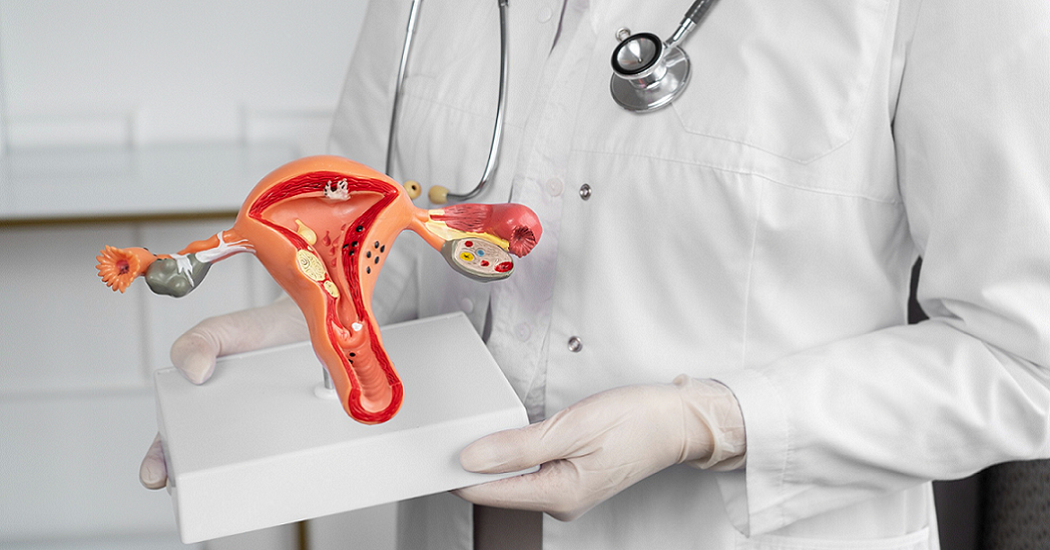
Different Types of Pelvic Organ Prolapse: Cystocele, Rectocele, and Uterine Prolapse
Pelvic organ prolapse is a condition where the pelvic organs—such as the bladder, uterus, or rectum—drop from their normal position and bulge into the vagina due to weakened muscles and connective tissues. It affects 1 in 3 women, particularly after childbirth, menopause, or with aging.
Understanding the types of prolapse can help you recognize symptoms early and seek pelvic organ prolapse treatment from a qualified urogynecologist.
1. Cystocele (Bladder Prolapse)
What is a Cystocele?
A cystocele occurs when the bladder descends and pushes into the front wall of the vagina. It is sometimes referred to as a dropped bladder.
Common Causes
- Vaginal childbirth or multiple deliveries
- Menopause (estrogen loss weakens tissues)
- Chronic coughing or heavy lifting
- Obesity (increased pressure on the pelvic floor)
- Constipation and straining
Symptoms
- A vaginal bulge or pressure
- Urinary leakage when coughing or exercising (stress incontinence)
- Frequent urination or difficulty emptying the bladder
- Recurrent urinary tract infections
Cystocele Treatment
- Pelvic floor exercises (Kegels) guided by a pelvic health specialist
- Pessary device (a non-surgical support placed in the vagina)
- Lifestyle changes (weight loss, avoiding heavy lifting)
- Cystocele surgery (anterior vaginal wall repair) for severe cases
2. Rectocele (Rectal Prolapse into the Vagina)
What is a Rectocele?
A rectocele occurs when the rectum bulges into the back wall of the vagina due to weakened connective tissue (rectovaginal septum).
Causes
- Vaginal deliveries (especially with forceps or vacuum)
- Chronic constipation and straining
- Menopause and aging
- Previous pelvic surgeries
Symptoms
- Vaginal pressure or a soft bulge at the vaginal opening
- Difficulty passing stool (may need to press on the vaginal wall)
- Constipation and incomplete bowel movements
- Pain or discomfort during intercourse
Rectocele Repair and Management
- Pelvic floor physical therapy
- Dietary changes and fiber supplements to ease constipation
- Vaginal pessary for mild cases
- Rectocele surgery (posterior vaginal wall repair) for persistent symptoms
3. Uterine Prolapse
What is Uterine Prolapse?
Uterine prolapse occurs when the uterus slips down into the vaginal canal. In advanced stages, the cervix or uterus may protrude outside the vagina.
Causes
- Pregnancy and childbirth (especially multiple or traumatic births)
- Aging and loss of estrogen
- Obesity or chronic pressure from coughing and lifting
- Family history of weak connective tissue
Symptoms
- A dragging sensation or pressure in the pelvis
- Visible bulge or tissue at the vaginal opening
- Backache or pelvic discomfort
- Urinary incontinence or difficulty starting urination
- Discomfort during sexual activity
Uterine Prolapse Treatment
- Pelvic floor therapy and Kegel exercises for mild prolapse
- Vaginal pessary (non-surgical support)
- Hormone therapy (estrogen) for postmenopausal women (if appropriate)
- Uterine prolapse surgery, including:
- Hysterectomy (removal of the uterus)
- Uterine suspension (lifting and reattaching the uterus using sutures or mesh)
Diagnosis and When to See a Urogynecologist
If you experience:
- A vaginal bulge
- Persistent pelvic pressure
- Urinary or bowel difficulties
- Pain during intercourse
…it’s important to consult a urogynecologist. They will perform a pelvic exam and may use imaging tests (ultrasound or MRI) to confirm the diagnosis and recommend the best treatment.
Prevention Tips for Pelvic Organ Prolapse
While not all cases can be prevented, you can lower your risk by:
- Performing regular Kegel exercises
- Maintaining a healthy weight
- Avoiding heavy lifting and chronic straining
- Treating chronic cough and constipation early
- Seeking medical help at the first sign of prolapse
Looking for Pelvic Organ Prolapse Treatment?
If you’re experiencing symptoms of cystocele, rectocele, or uterine prolapse, don’t wait until it worsens. Our urogynecology specialists offer non-surgical options, pelvic floor therapy, and advanced prolapse surgery tailored to your needs.
Book a consultation today to discuss the right treatment for your condition and regain your comfort and confidence.
Powered by Froala Editor
